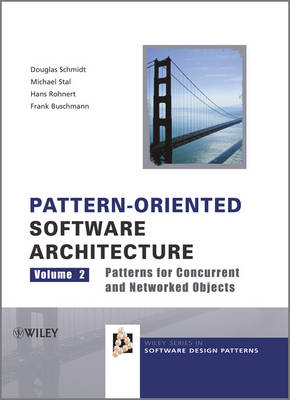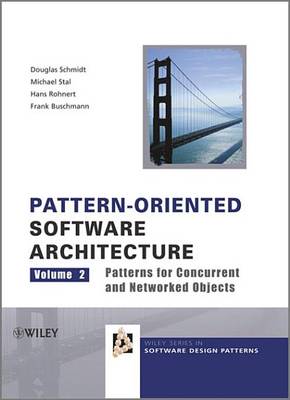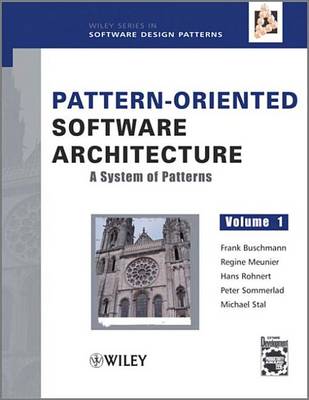Pattern-Oriented Software Architecture
3 primary works • 5 total works
Book 2
Pattern-orientated Software Architecture
by Frank Buschmann, Douglas C Schmidt, Michael Stal, and Hans Rohnert
Published 15 August 2000
Designing application and middleware software to run in concurrent and networked environments is a significant challenge to software developers. The patterns catalogued in this second volume of Pattern-Oriented Software Architectures (POSA) form the basis of a pattern language that addresses issues associated with concurrency and networking. The book presents 17 interrelated patterns ranging from idioms through architectural designs. They cover core elements of building concurrent and network systems: service access and configuration, event handling, synchronization, and concurrency. All patterns present extensive examples and known uses in multiple programming languages, including C++, C, and Java. The book can be used to tackle specific software development problems or read from cover to cover to provide a fundamental understanding of the best practices for constructing concurrent and networked applications and middleware. About the Authors This book has been written by the award winning team responsible for the first POSA volume "A System of Patterns", joined in this volume by Douglas C. Schmidt from University of California, Irvine (UCI), USA. Visit our Web Page
Book 9
Pattern-Oriented Software Architecture
by Frank Buschmann, Kevlin Henney, and Douglas C Schmidt
Published 12 July 1996
Pattern - Oriented Software Architecture A System of Patterns Frank Buschmann, Regine Meunier, Hans Rohnert, Peter Sommerlad, Michael Stal of Siemens AG, Germany Pattern-oriented software architecture is a new approach to software development. This book represents the progression and evolution of the pattern approach into a system of patterns capable of describing and documenting large-scale applications. A pattern system provides, on one level, a pool of proven solutions to many recurring design problems. On another it shows how to combine individual patterns into heterogeneous structures and as such it can be used to facilitate a constructive development of software systems. Uniquely, the patterns that are presented in this book span several levels of abstraction, from high-level architectural patterns and medium-level design patterns to low-level idioms. The intention of, and motivation for, this book is to support both novices and experts in software development. Novices will gain from the experience inherent in pattern descriptions and experts will hopefully make use of, add to, extend and modify patterns to tailor them to their own needs.
None of the pattern descriptions are cast in stone and, just as they are borne from experience, it is expected that further use will feed in and refine individual patterns and produce an evolving system of patterns. Visit our Web Page http://www wiley. com/compbooks/
None of the pattern descriptions are cast in stone and, just as they are borne from experience, it is expected that further use will feed in and refine individual patterns and produce an evolving system of patterns. Visit our Web Page http://www wiley. com/compbooks/
Book 12
Pattern-Oriented Software Architecture, On Patterns and Pattern Languages
by Frank Buschmann, Kevin Henney, and Douglas C Schmidt
Published 30 April 2007
Pattern-Oriented Software Architecture, Patterns for Concurrent and Networked Objects
by Douglas C Schmidt, Michael Stal, Hans Rohnert, and Frank Buschmann
Published 19 April 2013
Pattern-Oriented Software Architecture, A System of Patterns
by Frank Buschmann, Regine Meunier, Hans Rohnert, Peter Sommerlad, and Michael Stal
Published 18 April 2013



